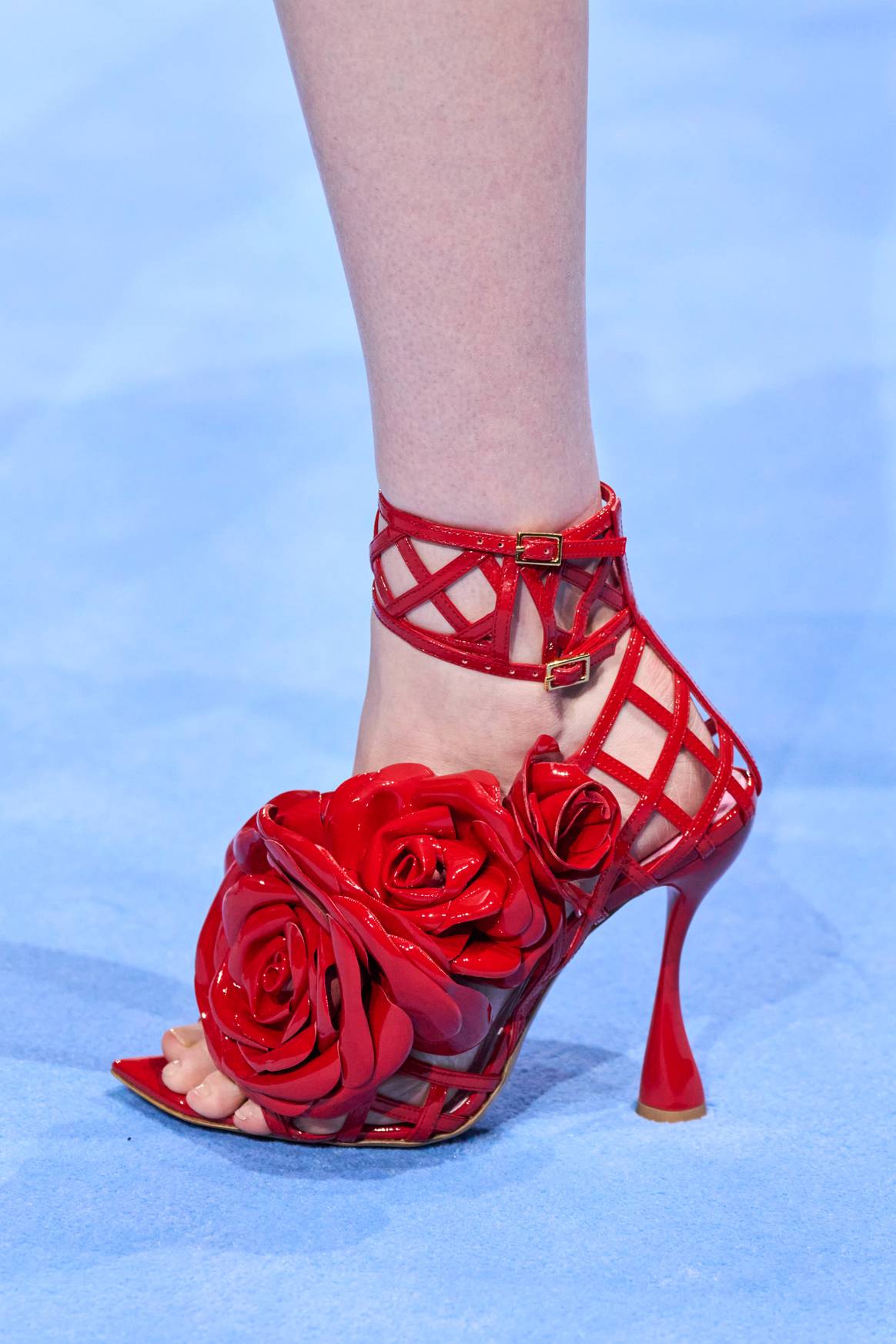
“Every Saudi woman and lady is aware of about Dar Al Reaya—we are introduced up fearing Dar Al Reaya,” suggests Farida, a former detainee in her twenties, who was sentenced to two years in just one of Saudi Arabia’s notorious detention facilities for ladies following she submitted a law enforcement criticism in February 2019 about bodily harassment she was going through from a male relatives member whom she was living with at the time. “I bear in mind growing up, driving past these facilities—big blocks, with shutters down on each individual window, just down the street from us and the procuring malls—and I would believe, Who is within there now? How many are within? I never believed I would be 1 of the women who finished up there. Under no circumstances.”
Dar Al Reaya, or “Homes of Treatment,” are a community of detention services whose formal purpose is to keep females below the age of 30 who will need “social correction,” “strengthening of their religious faith,” or these who are under investigation or trial, according to an formal at Saudi Arabia’s Ministry of Human Assets and Social Enhancement, which oversees Dar Al Reaya. But former detainees say they have been despatched to the amenities on costs of disobedience or even since of minimal disagreements at residence. Other women interviewed for this story say they were being held in the facilities without getting billed.
Farida, whose identify has been altered for her security, is one particular of the several previous detainees to communicate out about existence inside Dar Al Reaya. People who are produced from Dar Al Reaya say they ended up pressured into signing pledges to under no circumstances converse of their detention. Social media accounts describing a myriad of mistreatment and physical abuses in Dar Al Reaya have been suspended and there are no figures on how a lot of females and young children are currently being held. The properties are in unique governing administration properties and not formally marked, even though some are labeled “Social Defense Unit.” 4 previous detainees I spoke with stated they have been held in amenities across key towns in the Kingdom like Riyadh, Jeddah, Tabuk, Dammam, and Jazan.
Farida was released after 16 months, in mid 2020. She states most of her fellow detainees ended up staying held for reporting abuse to authorities. “After I went to the police, determined for support, they identified as my abuser into the law enforcement station to signal a pledge, approving my detainment in Dar Al Reaya,” Farida says. “There is no a person you can have faith in.” Gals are not permitted to exit Dar Al Reaya with out the authorization of their guardian, who often is their abuser, at the finish of their sentence.
Some centers are even keeping youngsters, in accordance to former detainees. 1 former detainee of a facility in Dammam, who did not would like to share her name for her basic safety, advised me she and her two-calendar year-outdated-daughter were held with each other right after she described abuse at residence. “My daughter was not supplied good meals she ate only twice each day. She was hit by the personnel for crying and produced to check out when I received lashes,” the woman claims. Just after far more than two months, her abuser permitted her exit and she returned property to him.
Asma, whose title has also been altered for her security, was sentenced to 20 months after she introduced up the subject of inheritance with her male kin. She remembers remaining stripped-searched upon arrival. She was offered a loose fitting gown with Dar al Reaya stamped on the back again. Her makeup and add-ons ended up taken out and her bodily problem on arrival was observed, as well as what kind of abaya she was donning: Was it “decent” masking her head, or “not good,” aka slung lower throughout her shoulders? She was then handed a pack with two sanitary pads, a toothbrush, tiny towel, shampoo, and one adjust of apparel. The induction is done by woman team, but normally all of the guards and caretakers on the wards are male.
Each individual female is place into solitary confinement upon arrival, ostensibly for a several times, but some are left there for up to two months. In solitary confinement “blood assessments,” are taken, their reason not defined to the gals. The rooms each and every have a mattress, a Quran, and a toilet—if they’re fortunate. The women without bathrooms have to beg the male staff to enable them out to use the restroom some girls report wetting by themselves relatively than dealing with the guards.
The females are forbidden from talking to each and every other or demonstrating outward signs of contentment. They acquire meals twice a working day at 6am and 1pm. Equally Farida and Asma advised me the gals are drive fed strong sedatives with their breakfast to keep them compliant all through the day.
When ladies get there at the facilities they are informed what their punishment will be—typically in between 100 and 150 lashes. The lashes are spread out above their time at Dar Al Reaya, allowing gals to heal ahead of receiving the next. “Flogging occurs at Dar Al Reaya each individual Thursday,” Asma claims. “There are minors inside and pregnant women of all ages who are victims of rape and incest and they will acquire lashes also.” Extra flogging or solitary confinement for at the very least 20 days is administered for breaking regulations, or speaking back to male employees or even inquiring questions about their expenses, suggests Farida. Every single lash is administered among the neck and the decreased back, and is observed by an islamic scholar, who assures the “religiosity” of the violence.
Suicide and incidents of self hurt in Dar Al Reaya are common, states Farida. Unsuccessful suicide attempts outcome in solitary confinement and flogging, “which undoubtably harms the girls’ psychological overall health and may even further enhance suicidal ideas,” Farida adds.
A different detention facility operate by the Social Affairs Ministry called Dar Al Theyafa, or “the Household of Hospitality,” mainly functions as a keeping center for girls whose guardian does not allow her independence even right after her “sentence” at Dar Al Reaya is full. “Then, the prison has the selection to marry her off or hold her imprisoned indefinitely,” Farida describes. “There are ladies who have been produced to male suitors who they have never achieved ahead of, instructed that their spouse and children have authorised the match, and find them selves in an arranged relationship.”
One particular previous detainee of Dar Al Theyafa, who declined to give her name, states she realized a girl who tried to dangle herself with her bra and was caught and punished. “After that, they banned us from wearing bras for a interval of time for the reason that the legislation of Dar Al Theyafa is, 1 individual’s error is everybody’s. Some ladies have experimented with to commit suicide by breaking the trash cans to get a sharp edge, so the caretakers took the trash cans away, also.”
Thirty-four yr-aged Bethany Alhaidari fled Saudi Arabia for the United States in 2019 to escape abuse from her partner at the time and, in January 2020, submitted an unexpected emergency situation inquiring the court in Washington condition to give her custody of her now six-12 months-outdated daughter, which was temporarily granted. Alhaidari now will work as the Saudi Officer at the Independence Initiative, a DC dependent human rights non-earnings group that works to no cost political prisoners in the Center East, and suggests that the group has gained hundreds of requests to assistance females in Saudi Arabia, numerous of whom, she says, fear they will be despatched to Dar Al Reaya. “These ladies are going through discrimination and violence in relation to marriage, divorce and baby custody. There is an too much to handle craze of violence, abuse, often from within the household, manipulation of justice where gentlemen face small to no lawful consequence—even for murder,” states Alhaidari, “such situations which are a lot more popular than people today realize.”
Saudi Arabia statements it truly is modernizing and strengthening women’s rights. But, Alhaidari suggests, the fact is that there are no protected spaces for Saudi women to demand essential legal rights. “Saudi Arabia does not have authorized support for girls to transform to when they are fleeing abuse or defending them selves from costs brought by their families or the state,” she claims, adding that no impartial human legal rights or women’s legal rights companies are permitted to get the job done in the state.
Furthermore, there is no penal code or clarity on what actions are criminal for gals. Courts are entitled to their own interpretations of faith, ensuing in inconsistencies in sentences. Alhaidari suggests that in Saudi courts, women’s testimony is not considered equivalent to men and even when bodily proof of abuse is presented in courtroom, guys are often in a position to only acquire an oath to discredit it. The process is established up to fail girls, Alhaidari says. “Until the male guardianship program, which renders girls as perpetual minors, is abolished, right up until we see that males who dedicate violent crimes towards woman spouse and children customers are held accountable. Until finally a woman’s term is considered equal to men’s beneath the legislation and in courts, Saudi Arabia just isn’t risk-free for women.”
On Intercontinental Women’s Working day final 12 months, 161 European parliamentarians signed a joint assertion contacting on Saudi authorities to get swift and sturdy motion to increase women’s rights within just the kingdom. “Women are nonetheless not capable to leave detention centers or condition-operate shelters with no having to look for and receive the consent of their male guardians, who may possibly have previously abused them,” the statement reads. “This can direct to predicaments of extended administrative detention if a male guardian refuses to indication a release kind or collect a female less than his guardianship.”
Since that assertion was issued not a single Dar Al Reaya facility has been closed. Rather, Alhaidari states, new makeshift amenities are getting crafted to dwelling more detainees. And as very long as Dar Al Reaya exists, there will generally be a place the place Saudi girls can be disappeared.




